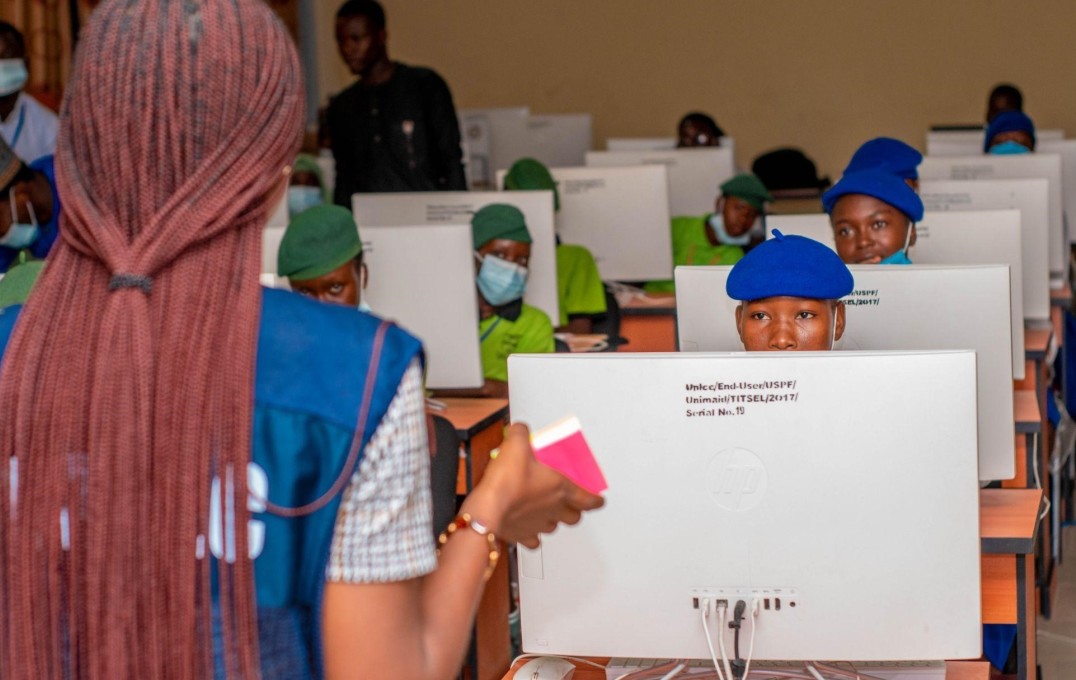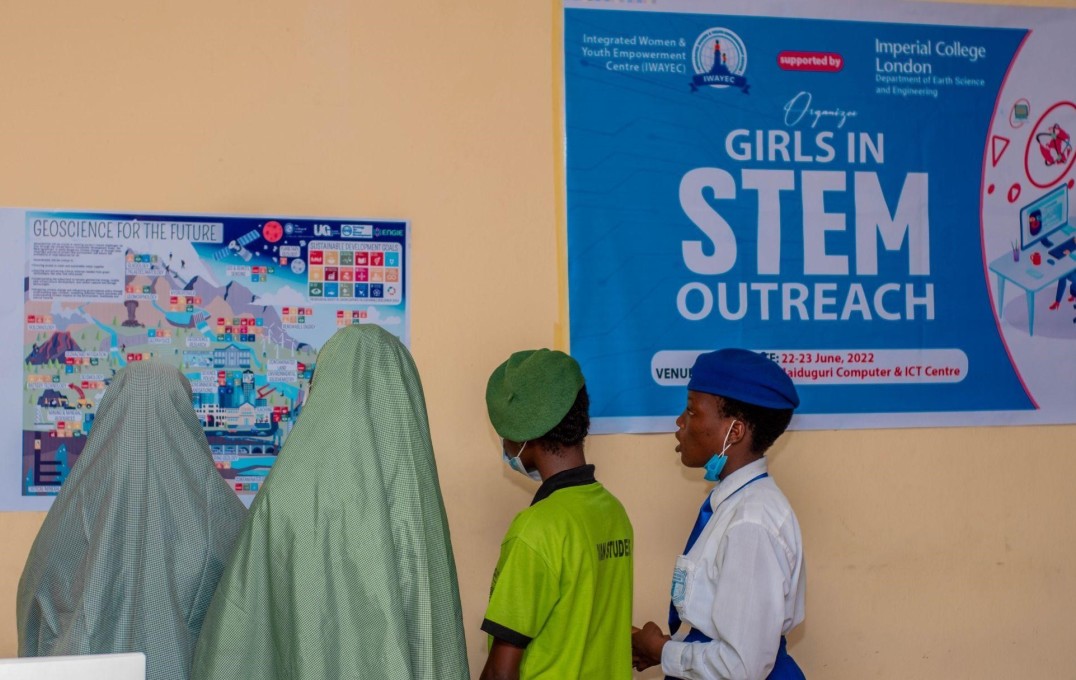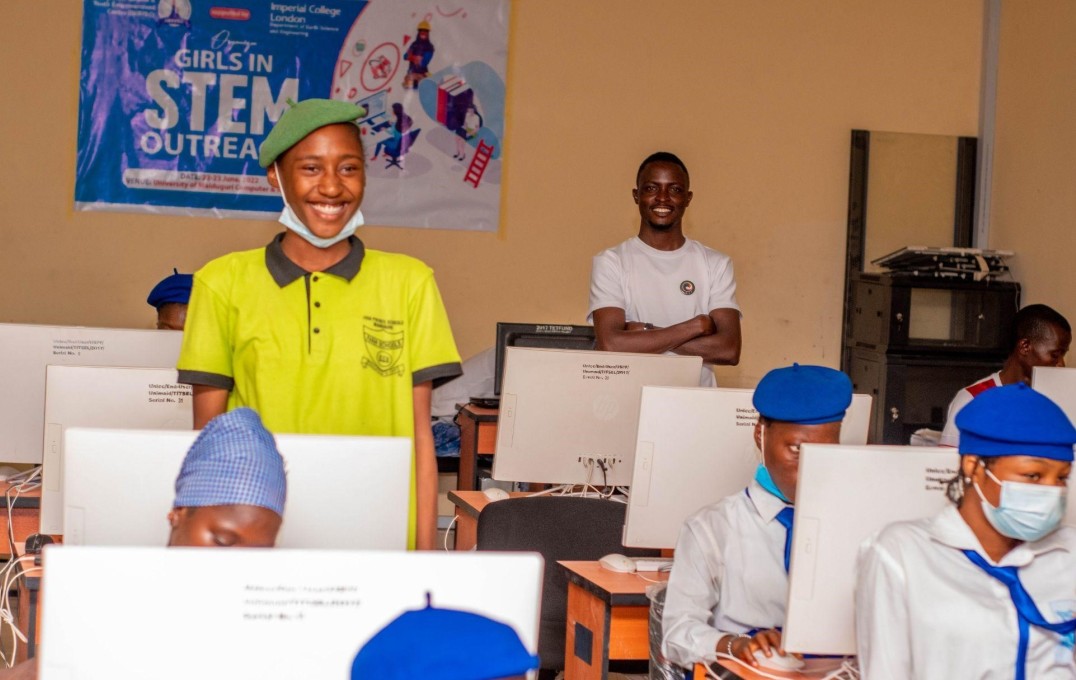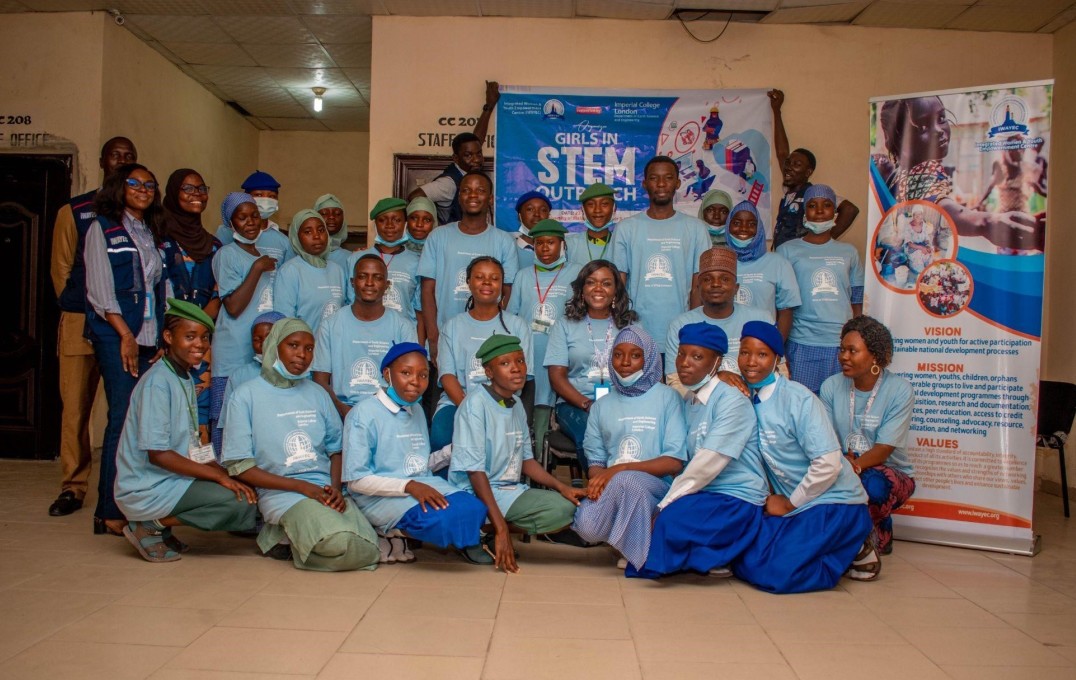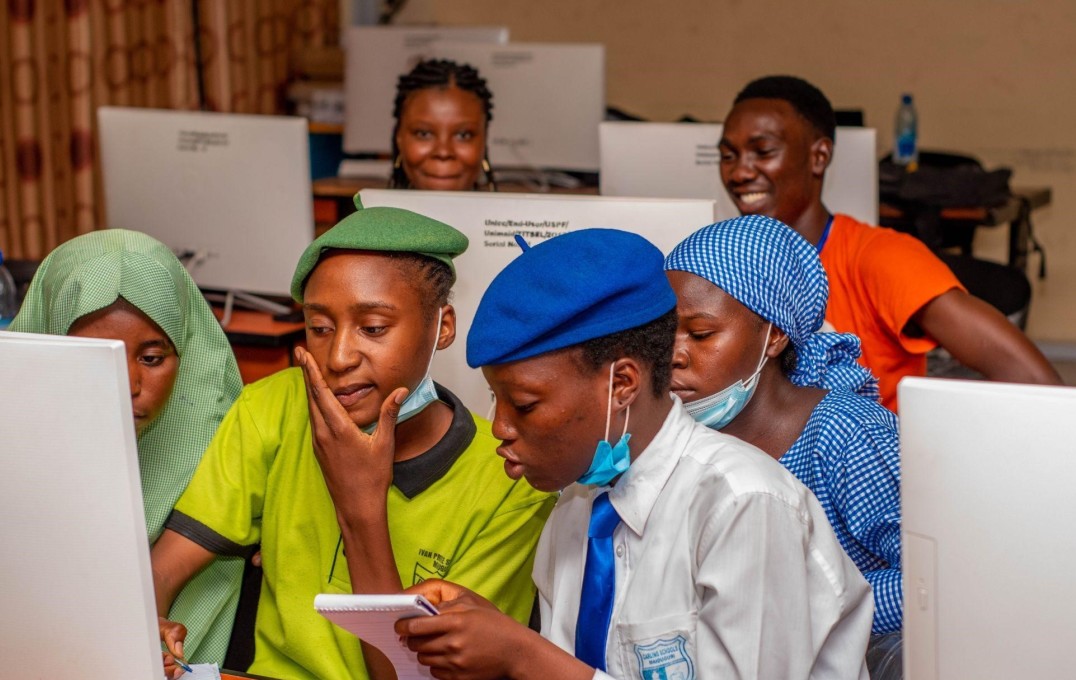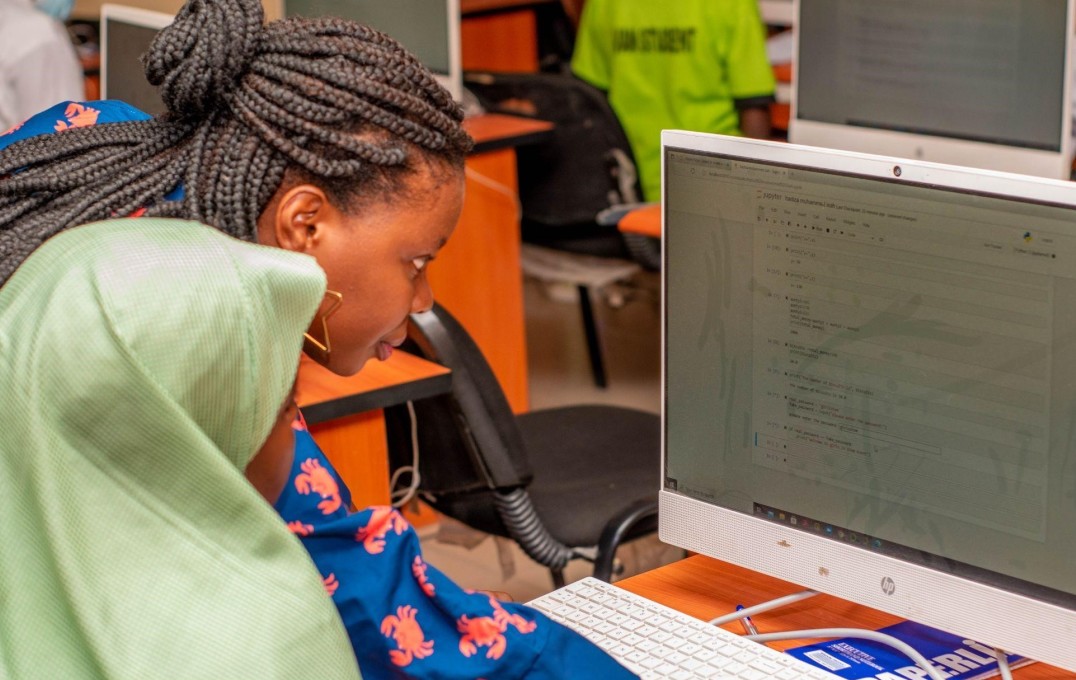Making impact through digital learning
by Zainab Titus

Students in Maiguguri learn about digital geoscience in an outreach programme
ESE PhD student delivers Girls in STEM outreach for 20 students in North-eastern Nigeria.
To encourage the next generation of females into STEM, Zainab Titus was awarded funding by ESE to lead an outreach as part of an initiative launched for International Women and Girls in Science Day 2022.
Zainab’s idea was to run a virtual outreach with the theme Digital Tools for Sustainable Geoscience that will expose students in Maiduguri, a city in northeastern Nigeria, to a plethora of resources and digital learning tools. Having spent her early childhood in Maiduguri, Zainab has worked on previous projects there providing education-in-emergences aid to address rising out-of-school children and female illiteracy, exacerbated by the Boko insurgency. In September 2020, Zainab was awarded the Imperial College Professional Project Fund to develop a project and work with Integrated Women and Youth Empowerment Centre (IWAYEC), a non-profit youth empowerment organisation in northern Nigeria, to deliver the first-ever mobile library for children in the displaced people’s camp in Maiduguri.
With the world becoming highly technological and increasingly computerised, the knowledge gap between disadvantaged girls and privileged groups will only become wider. Providing girls in deprived societies with the right tools for learning will enable them thrive and contribute to sustainable development in their local communities and the world at large.” – Zainab Titus, Earth Science and Engineering PhD Student.
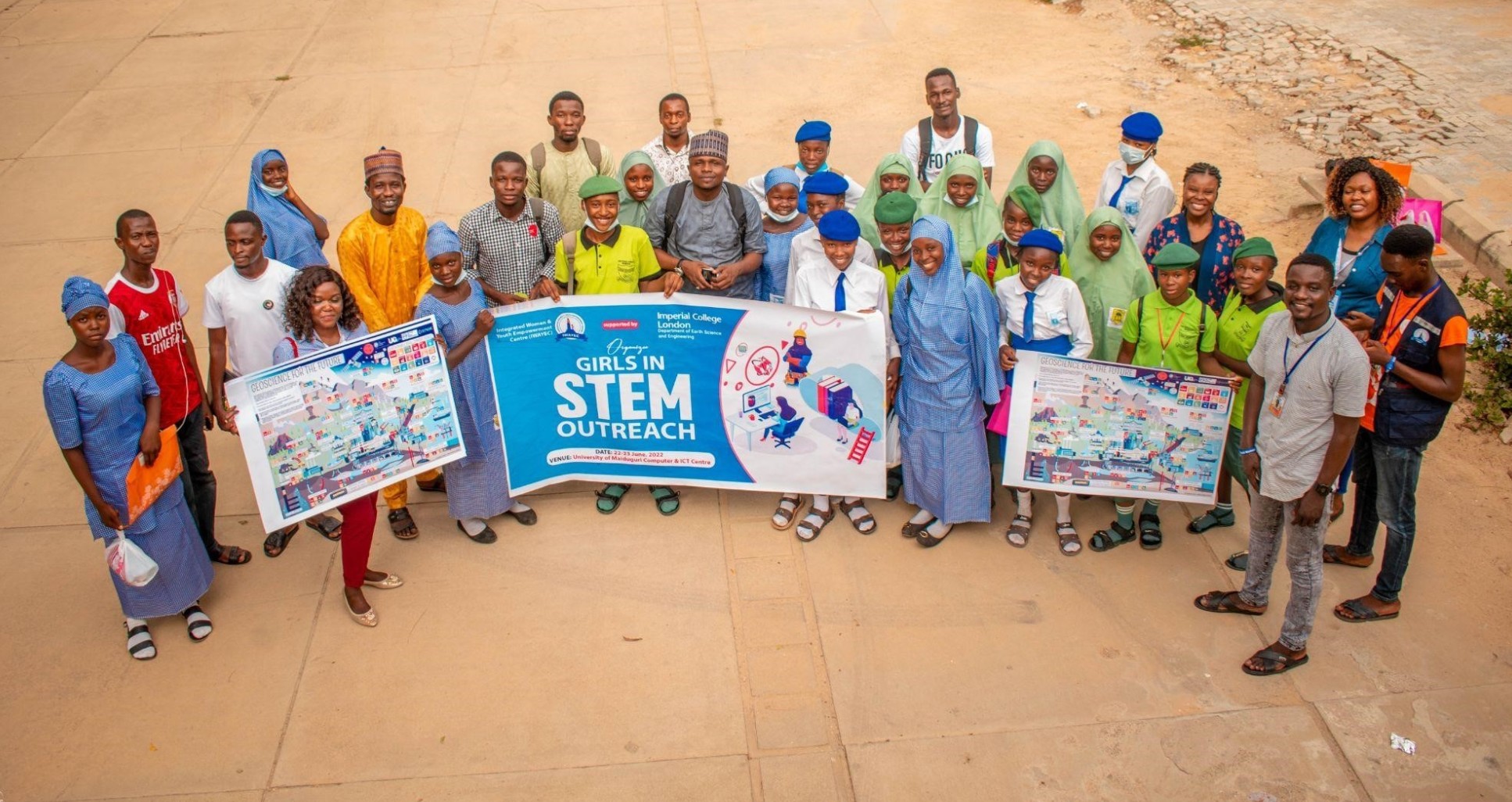
Ambition delivered
Girls from four local schools participated in the online sessions over two days in Summer 2022. With support of the Department, Zainab planned and designed the programme.
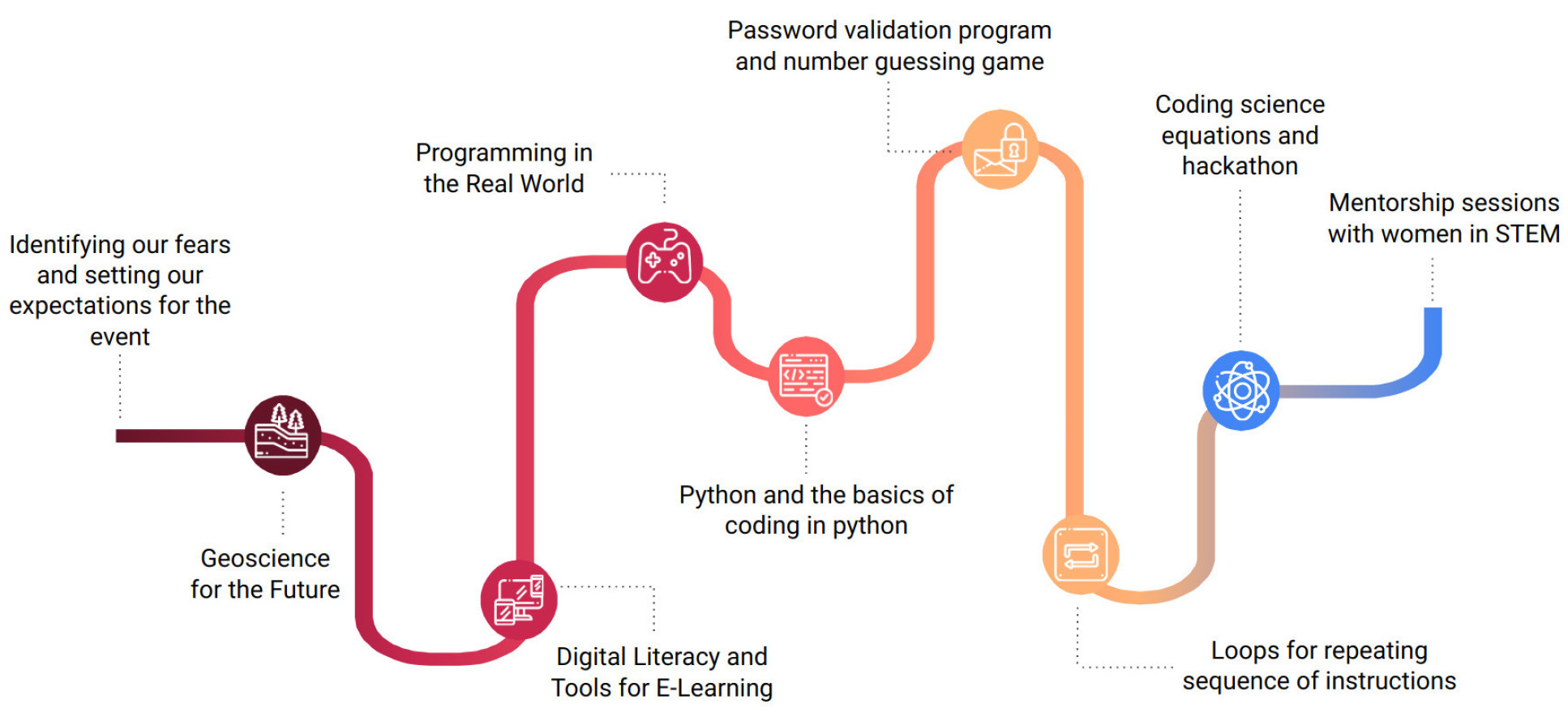
The event was a first-of-its-kind experience for the students who learnt to use the internet for digital learning and write simple codes in python. The girls also learnt about geoscience and its different fields of application for sustainable development, and participated in a mini-hackathon where the winners received certificates and prizes.
Dr Rebecca Bell, Senior Lecturer in ESE and co-chair of the Athena Swan Committee, who supported the initiative, said: “Zainab’s inspirational, novel outreach engagement shared engineering concepts and practise with young people who have some of the greatest barriers to accessing STEM anywhere in the world. We are delighted to have been able to support Zainab to deliver this programme”.
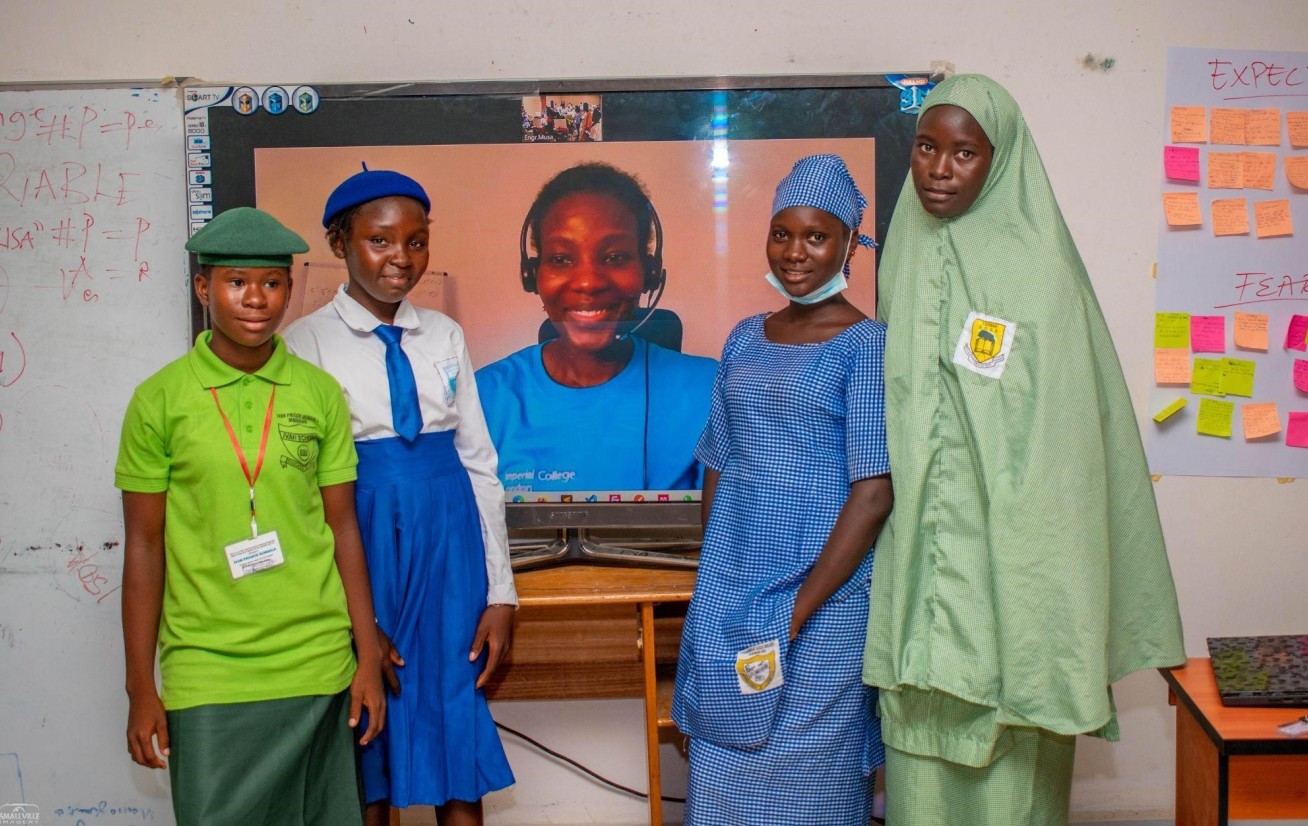
The students come from backgrounds where digital literacy levels are very low and girls are not always encouraged to pursue education, particularly in STEM subjects, but here had the opportunity to prepare to compete with students in other societies. A feedback survey showed that 60% of the girls agreed that they didn't know how to use computers at the start of the event, but they had learnt how to confidently operate one, use the internet responsibly and write simple codes in python.
During a mentoring session, the students asked the women on the panel to share their experiences on how they overcome challenges and break barriers. The event served to inspire the girls to push beyond their limits and aspire for more regardless of the socio-cultural issues facing girl-child education in their communities.
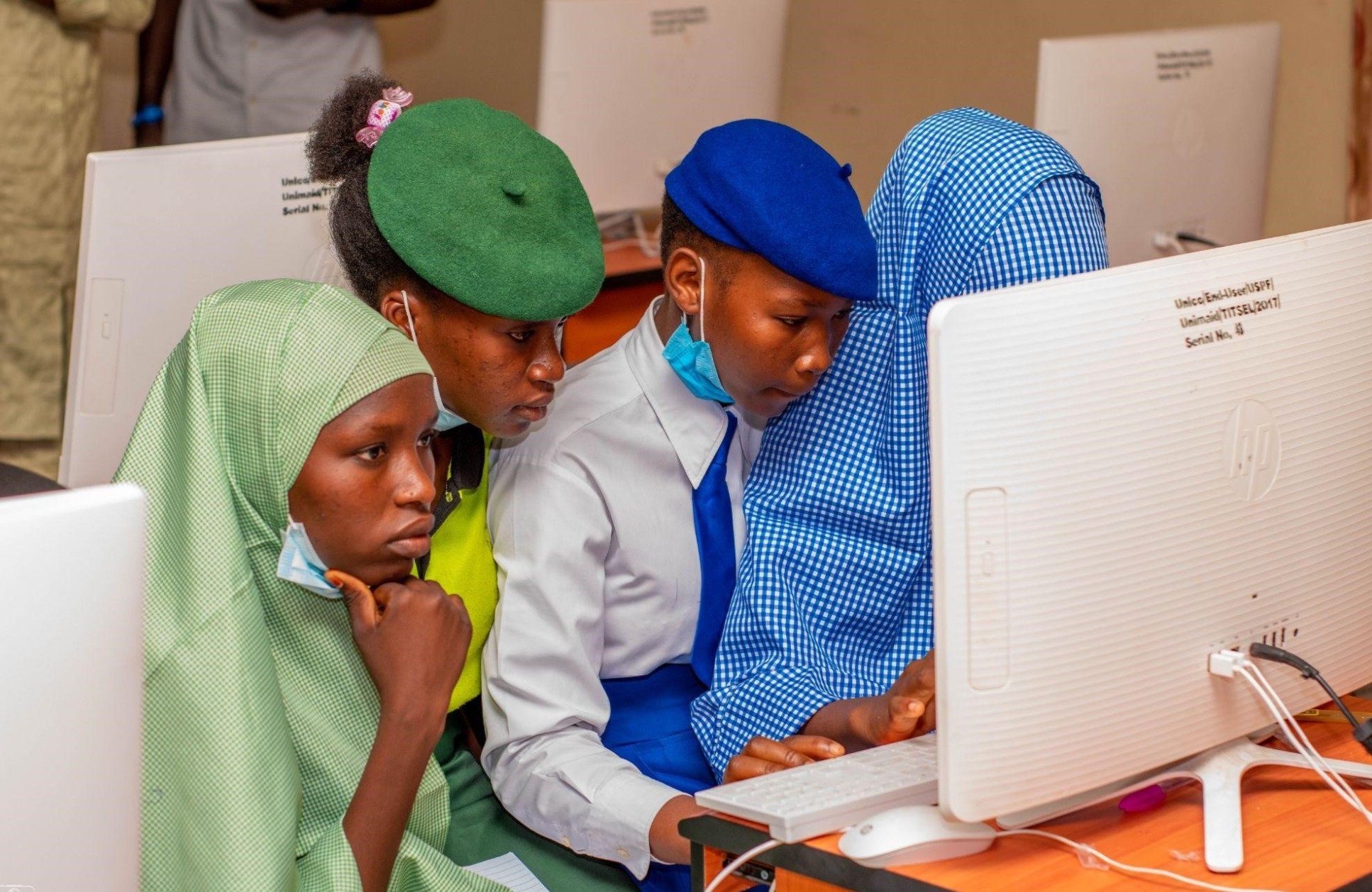
Making an impact
Not only did the students impress with the technical knowledge they acquired through the session, Zainab received emails from some of the girls after the event saying thank you for the impact the programme has had on them, and also expressing their interest in further coaching/mentorship. This confirms that the girls have continued to apply what they have been taught - creating and using an email account which they learnt to do for the first time in the programme.
One attendee, Fatima, said: "Now I know many more things about using computers that I didn't know before. I have also started teaching my younger ones how to write codes in python. I had wanted to be a doctor but now I would like to be a programmer in the future. I also didn't know about geoscience but I have now learnt about what geoscience is and what STEM means. Girls should study science subjects so that they can go into professions like Doctors which is not just for boys but for males and females."
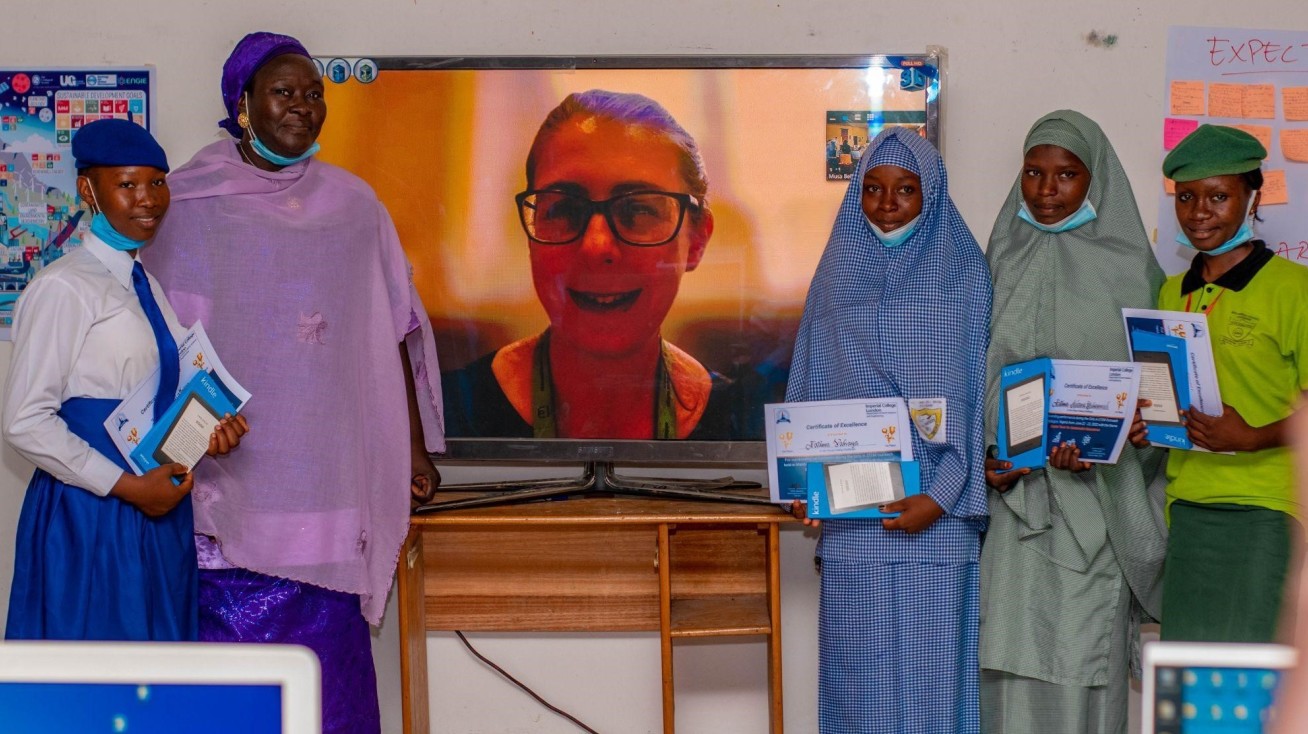
One of the teachers reported that after the event, the knowledge of his students about computers and their use increased. The girls now use computers during their practical classes to try out other things beyond just typing on Microsoft Word.
Lasting change
The performance and enthusiasm of the students motivated Zainab to develop further sessions to ensure the sustainability of the outreach. Zainab is working with ESE and IWAYEC on a mentoring programme with one student from each participating school who has been outstanding during the event and has communicated their desire to learn. The four mentees will serve as "STEM Ambassadors" who will go on to teach others in their schools and communities.
At the closing ceremony of the event, the girls, their teachers and principals expressed their gratitude to ESE, IWAYEC, University of Maiduguri, and the incredible team of volunteers for the impact made in the lives of these young girls.
For Zainab and all those who contributed to this outreach, the impact of the event certainly validates that: “The best way we can justify the opportunities we have is by solving some of the toughest challenges of our time in society.”
Thanks to all involved
ESE alumnus Emmanuel Ikehi worked with Zainab in conducting and managing the remote teaching sessions. PhD students from ESE- Deborah Pelacani-Cruz, Saira Baharuddin, Harriet Dawson, Gabriela Salamao-Martins and Jumanah Alkubaisy helped in developing learning materials/resources, and contributing to the mentoring sessions. Longtong Dafyak from Nottingham University and Hajara Kabeer from University College London who were panellists during the mentoring sessions offered valuable advice to the girls.
IWAYEC in Maiduguri, managed the operations and logistics of the event and ensured a smooth virtual learning experience.
The outreach was held in the University of Maiduguri ICT Centre and supported by in-person volunteers from the University and other institutions.
Zainab is a PhD student of computational geoscience within ESE looking at applying data-driven methods to build representative models of geological reservoirs. She’s very passionate about inspiring young people into STEM careers, and creating opportunities for those in disadvantaged societies to advance their academic and professional development.
Article text (excluding photos or graphics) © Imperial College London.
Photos and graphics subject to third party copyright used with permission or © Imperial College London.
Reporter
Zainab Titus
Department of Earth Science & Engineering
